Go Down the Rabbit Hole in This Fantastical French Park
A clown’s surreal playground is now open to the public
Slava Polunin lives life in a converted 1802 mill in Crécy-la-Chapelle, about an hour outside Paris. In his home, better known as Le Moulin Jaune, he is surrounded by fantastical sculptures and riotous colors. Using his imagination, Polunin paints his home’s landscape with a creativity that flows as freely as the Grand Morin River running through his property. And his surreal, Alice in Wonderland-like home is open for visitors.
The bright centerpiece of Polunin’s world is the mill itself. Painted banana yellow, it is filled with themed rooms—a "Jack and the Beanstalk" attic filled with puffy clouds, a blue-and-white Babushka room full of lace and china, a children’s playroom with a huge rocking moon. The house is surrounded by performance spaces in five whimsical gardens that serve as a working laboratory for the Academy of Fools, Polunin’s traveling collective of clowns.
Each garden, like each room of the house, has a theme. The Red Garden is Asian-inspired, home to a traditional Buddhist temple built by Polunin’s Korean friends. Red-topped tree stumps echo the curve of a bright red boardwalk leading through the woods to water, while red tea kettles, strung from trees, match the tulips below. Pale, cottony white shrouds the White Garden, an extension of a long-ago trip to India where life and water intersect. A stream follows a gentle slope down to a garden and pond; two humanoid sharks stand guard at the shore. The Black Garden speaks to childhood fears—it is filled with shadowy wooden sculptures, deep purple and black flowers, and black swans.
Awash in purples and blues, the Blue Garden represents the nomadic lifestyle of homeless circus performers. Visitors can stay in Polunin’s own gypsy trailer or attend workshops about personal expression and horticultural training at the garden school. Even the river has its own garden: The Water Garden is a floating paradise where plants potted on tiny ships float past performers in the water and on the shore. You can observe the floating fantasy from a hammock or a spot right on the dock—and you might even spot Polunin himself as he floats down the river on a bed he turned into a wrought-iron boat.
Although enshrined in creative excess at home, Polunin is a minimalist in his clowning heart. That aesthetic shines through in live performances like SnowShow, which was nominated for a Tony and won an Olivier Award. During the show, Polunin’s silent, yellow-clothed form is surrounded by thousands of white slips of paper that rain down from above. He slowly steps forward into crunching paper snow and releases an echoing howl across the stage. To the dramatic chorus of "Carmina Burana", he is overtaken by this mythical snowstorm before the stage goes quiet. The performance plays to the core of Polunin’s philosophy as a clown—silence and pantomime as a precursor to something bigger and more fantastic. Polunin, who began his career in the Soviet Union, used mime performances to satire governmental restrictions. He eventually carried the power of silent absurdity out of the USSR and to his eventual home in France.
Festivals and events are commonplace at Le Moulin Jaune, which Polunin opened to the public in 2010. Performers interact with guests and have even been known to hand out a pie in the face or two. The result is a joyful, festive place that celebrates life’s absurdities through the art of expression and foolishness. Here, guests are welcome to live out a bizarre, chaotic, and hilarious version of real life—one that calls to mind the dreamlike excesses of a real-life Wonderland. “Beware,” says a sign on Le Moulin Jaune’s front gate. “Dreams come true.”
Visitors are welcomed by appointment with a five-euro fee through reservations made by email at [email protected] or by phone at +33164637019.
/https://tf-cmsv2-smithsonianmag-media.s3.amazonaws.com/accounts/headshot/JenniferBillock.png)
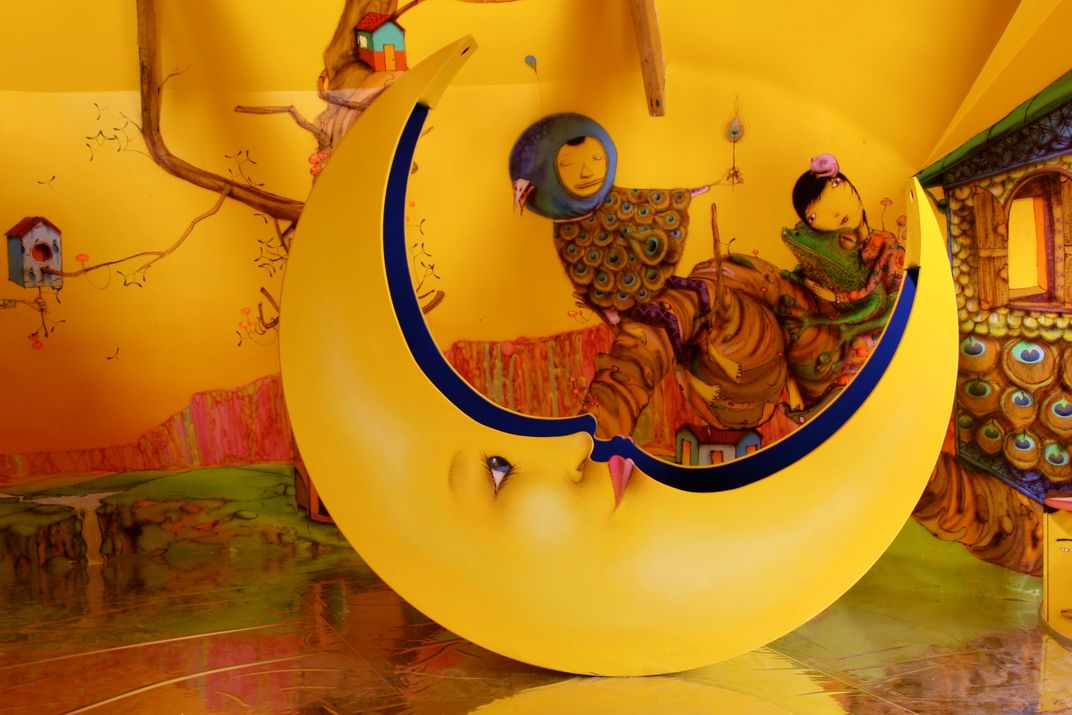
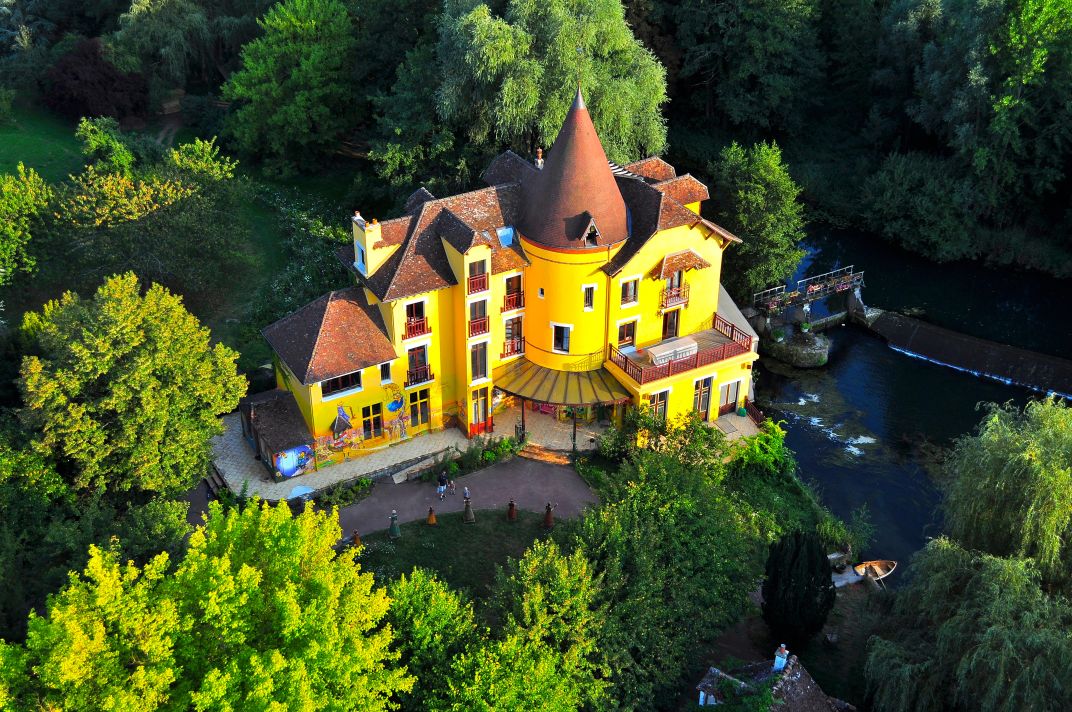
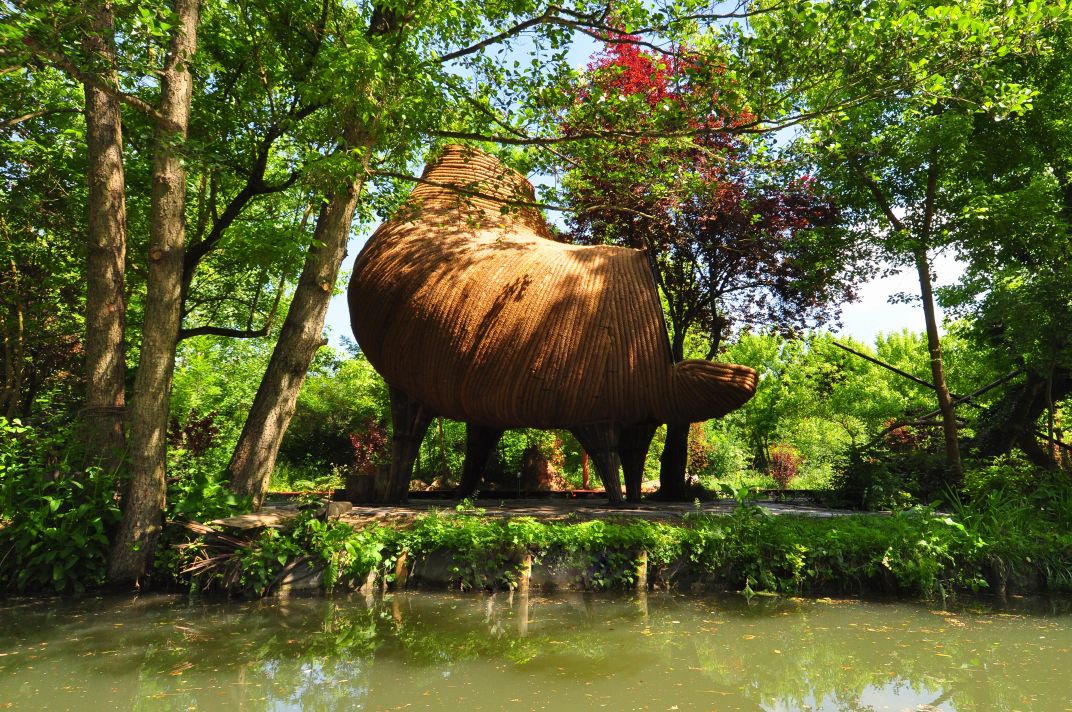
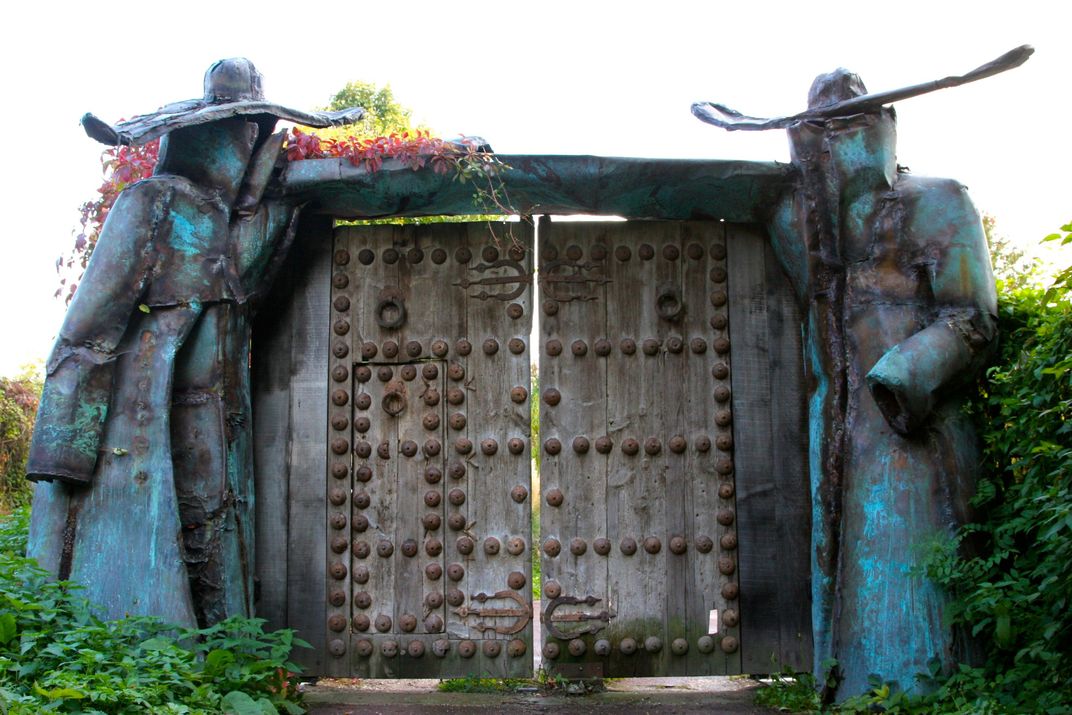
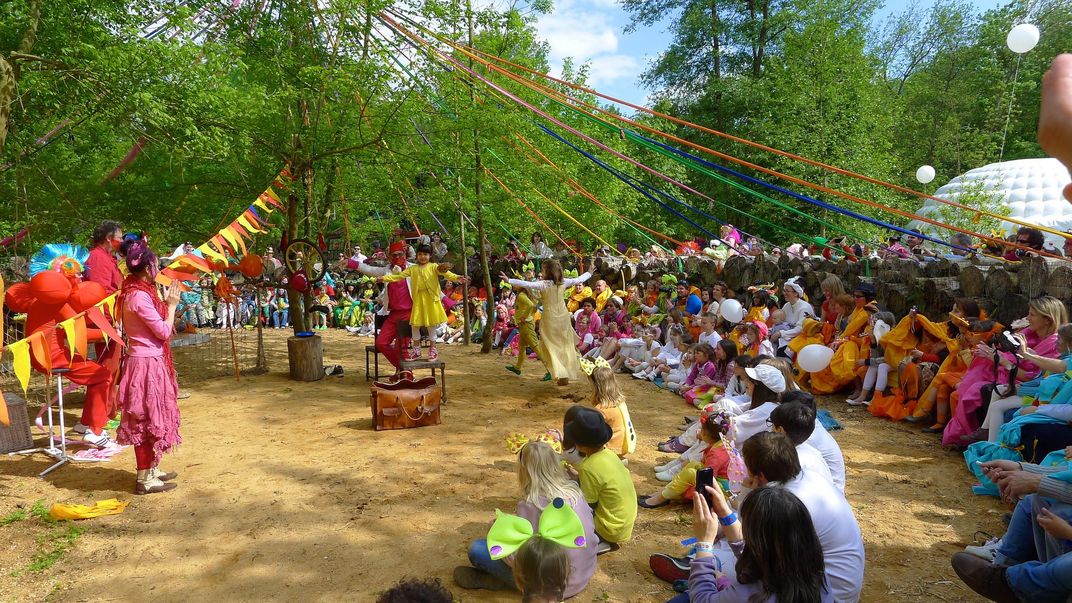
/https://tf-cmsv2-smithsonianmag-media.s3.amazonaws.com/filer/fe/8b/fe8bc5fc-58a8-4ba8-8cbc-7ae4b6e17896/17388109426_5324d1319d_k.jpg)
/https://tf-cmsv2-smithsonianmag-media.s3.amazonaws.com/filer/0d/bb/0dbbe298-8e08-4b62-8f24-c051328a8711/17206655907_706aef85a7_k.jpg)
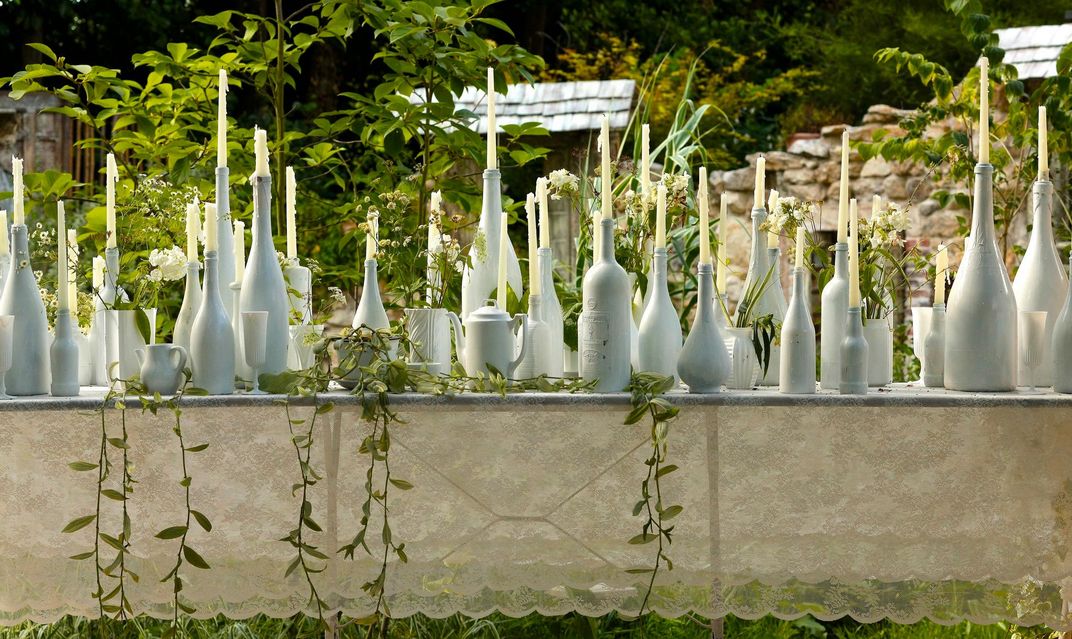
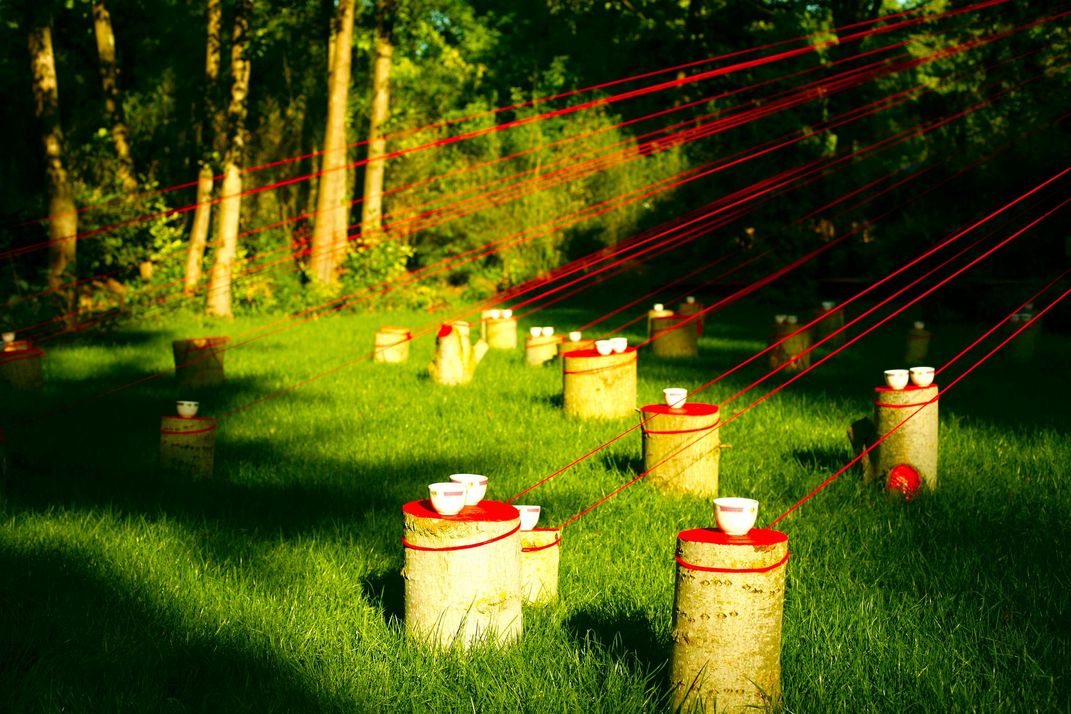
/https://tf-cmsv2-smithsonianmag-media.s3.amazonaws.com/accounts/headshot/JenniferBillock.png)